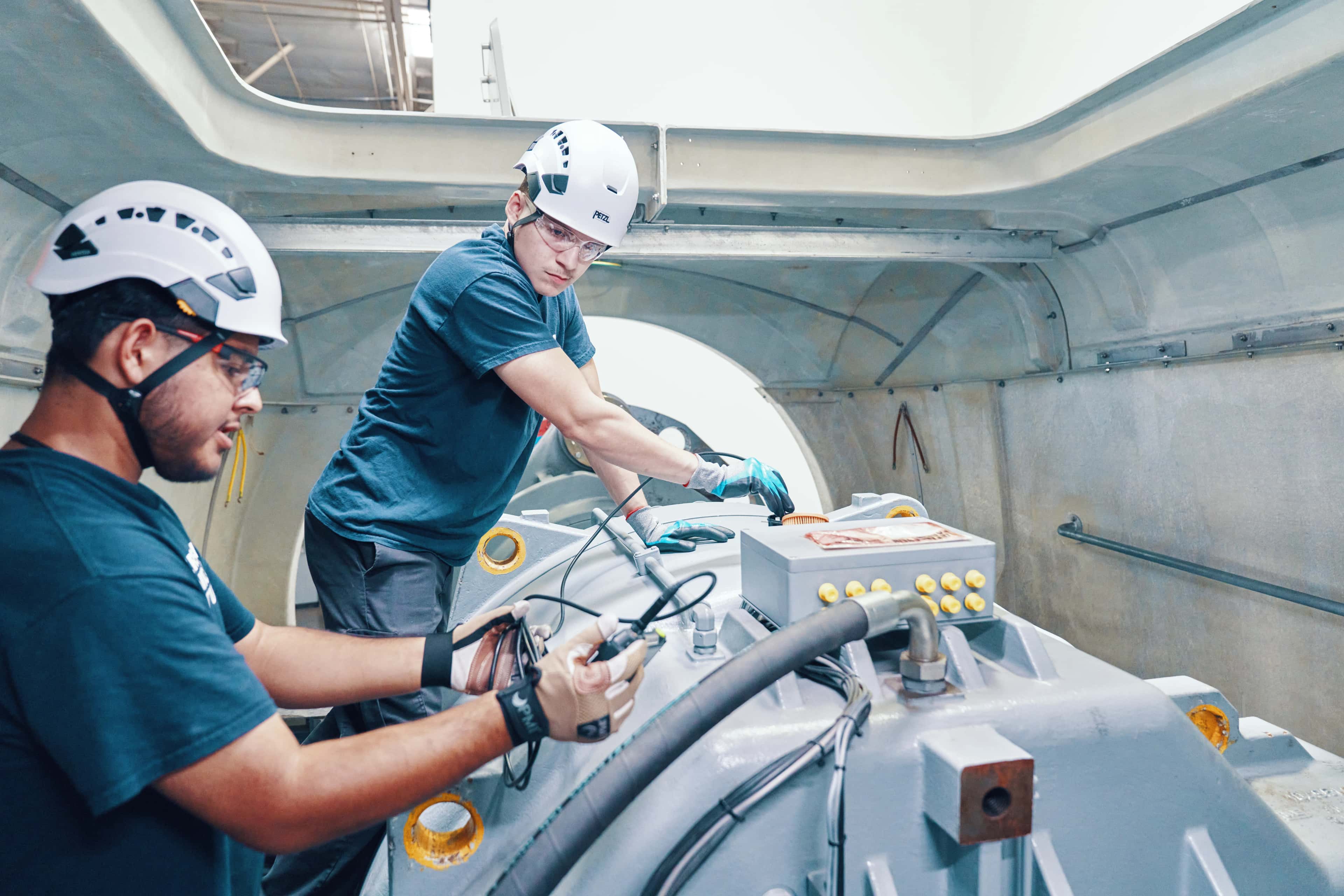Wind Technician Training Program Overview
More emphasis is being placed on generating cost-efficient, environmentally friendly energy sources. Wind is one of those renewable energy sources, which is in need of technicians to install turbines and keep them running.
Wind turbine technicians service wind turbine towers by climbing a ladder inside the turbine or riding an elevator to the desired working height. In some rare cases, like off-shore wind, they’re lifted by helicopter! To prepare to enter the wind industry, we offer a wind technician training program that’s hands-on, interactive and has instructors experienced in the field to provide support and important insight.
Wind Technician Training Program Goals and Length
In just seven months, you could have the skills needed to enter the field as an entry-level wind turbine technician.1
We want our students to acquire the skills needed to pursue a career in the wind industry, which is why we have relationships with employers and industry leaders to develop a curriculum that provides relevant, real-world knowledge. To see more information on careers in the wind industry, head here.
Wind Technician Training Program Locations
No matter the location you choose, you’ll get to work hands-on in labs with experienced instructors. Wind technician training is offered at 4 locations:
Canton, MI
Right by Detroit, our campus in Canton offers programs ranging from Wind Power to Robotics & Automation, which are designed to give you the knowledge and skills required by the industry.
Houston, TX
As the world’s fifth largest wind power producer in the world, Texas is a great place to study. Universal Technical Institute can give you the knowledge and skills required by this evolving industry.
Rancho Cucamonga, CA
Wind Turbine Technician training prepares students for careers in the transportation, skilled trades and energy industries. Also home to the country’s largest wind farm, California can be a great place to train.
Lisle, IL
With Illinois being a top state for wind electricity generation, UTI Lisle can be a great place to train in wind energy. Lisle is just 27 miles from Chicago and has its own beautiful downtown district, offering plenty of things for students to do when they’re not busy training.
Wind Technician Training Program Information
To be eligible to apply for the Wind Technician training program, students need to supply one of the following:
- Standards-based high school diploma
- State-issued GED certificate or state-authorized equivalent exam
- Successful completion of a degree program at the post-secondary level or evidence of having previously attended a Title IV-eligible program
- Completion of an officially recognized home-schooling program
For more information, head here. Talk with an Admissions Representative for details on all Wind Technician program requirements.23
FREQUENTLY ASKED QUESTIONS
To work in the wind industry, some skills needed include not being afraid of heights, problem solving and analytical thinking. Although no formal education is required, many employers want to have some proof that you are knowledgeable in the field, which is where wind technician training can be beneficial.
To work in the wind industry, some skills needed include not being afraid of heights, problem solving and analytical thinking. Although no formal education is required, many employers want to have some proof that you are knowledgeable in the field, which is where wind technician training can be beneficial.
To work in the wind industry, some skills needed include not being afraid of heights, problem solving and analytical thinking. Although no formal education is required, many employers want to have some proof that you are knowledgeable in the field, which is where wind technician training can be beneficial.
To work in the wind industry, some skills needed include not being afraid of heights, problem solving and analytical thinking. Although no formal education is required, many employers want to have some proof that you are knowledgeable in the field, which is where wind technician training can be beneficial.

